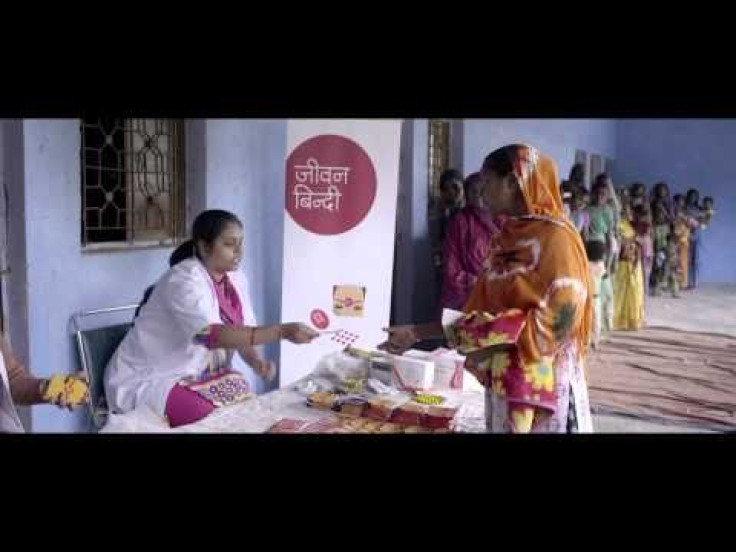‘Life Saving Dot’: How The Indian Bindi Can Help People Fight Iodine Deficiency

The bindi — the traditional red dot Hindu women wear on their foreheads — is filled with religious and decorative symbolism. It’s meant to signify beauty and intellect, as well as a connection with meditation. But a philanthropic group known as Grey For Good, which is part of the agency Grey Advertising, has teamed up with the Neelvasant Medical Foundation and Research Centre in India to transform the bindi into a vessel to provide nutrient-deficient women with iodine.
Iodine is a mineral found naturally in the body, and it’s essential for cells to metabolize properly. Iodine gives us energy, maintains thyroid function, and monitors thyroid hormones. We can also get iodine from food, particularly iodized salt; seafood like cod, sea bass, and perch, which contain the mineral naturally; and dairy products.
But in many parts of rural India, women suffer from iodine deficiency, and they don’t have access to the food sources containing this nutrient. Iodine deficiency is more prevalent in places with iodine-poor soil, and the long-term effects of it include goiter or hypothyroidism, as well as other health problems, such as including cretinism — a condition that results in being mentally or physically stunted. Pregnant women in particular are at a higher risk of iodine deficiency.
With the aim of providing hundreds and thousands of women with an easy source of iodine, Grey For Good and its collaborators developed a bindi that also serves as an iodine patch, covered with an adhesive of 150 to 200 micrograms of iodine. The bindis are distributed to medical camps in rural villages. Once the woman places the bindi on her forehead, the patch provides her with about 12 percent of her daily iodine requirement — it isn’t perfect, but it’s better than nothing. Think of it as similar to a nicotine patch: an easy, non-invasive way for these women to receive iodine.
“Iodine deficiency disorder is a major nutritional problem and the Life Saving Dot is a simple, yet innovative preventive measure to a widespread problem in rural India,” said Ali Shabaz, chief creative officer of Grey Group Singapore, in a press release. “This program can easily be extended to reach a larger population of women in India who need this vital mineral for a healthier life.”
Not much data has yet been gathered on the efficacy of the campaign, but it may at least offer a chance to raise awareness about iodine deficiency, particularly in rural parts of third-world countries.



























